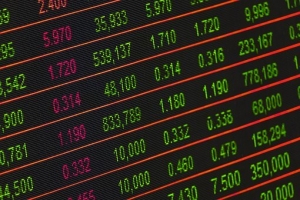
By Illinois Radio Network
SPRINGFIELD – The stock market has come a long way in the past decade, but many public investors have dialed back expectations for investment returns in the coming years, a move that’s seen as fiscally prudent, but one that can mean bigger bills for taxpayers.
A new report from the Pew Charitable Trusts found that more than half of the nation’s public pension funds Pew tracks lowered their expected rate of returns in 2017, the most recent year of available data.
“Following the steep swings during the recession and in the years immediately afterward, these changes reflect a new normal in which forward-looking projections of expected economic growth and yields on bonds are lower than those that state pension funds have historically enjoyed,” the report said.
In 2016, the board of the Teachers’ Retirement System of the State of Illinois voted to lower the system’s return expectation to 7 percent, down from 7.5.
TRS, the state’s largest pension fund, saw a .001 percent return that year, but a 12 percent return in 2017 and an 8.5 percent return in 2018. These swings are largely the reason for more tempered expectations, said Susan Banta, the Pew project director.
“The market is volatile,” she said. “They’re lowering their expected rates of return as they plan for the future of the pension fund. They’re not expecting to see them yield the returns we saw in the 80s and 90s.”
She said around 60 percent of pensioner payouts come from investment returns.
The upside of a lowered expectation is less chance of a surprise shortfall to be made up for with state funds or significant growth of the unfunded ratio. The downside is a bigger annual contribution, which puts pressure on state and local budgets. Pew estimates that a 1 percentage point drop in the discount rate would increase reported liabilities across U.S. plans by more than $500 billion.
When TRS announced it would vote to lower their return, then-Gov. Bruce Rauner protested the change. His office sent TRS a strongly-worded letter advising that the cost to taxpayers in the coming years would be significant.
“If the (TRS) board were to approve a lower assumed rate of return taxpayers will be automatically and immediately on the hook for potentially hundreds of millions of dollars in higher taxes or reduced services,” said Michael Mahoney, one of Rauner’s senior advisers.
TRS is also an outlier, per the Pew report, on the amount of money it invests in “alternative investments,” such hedge funds or private equity that vary in type, but many are considered higher risk.
TRS has 42 percent of its assets in this category, higher than all but four of the funds Pew tracks.
Illinois Radio Network can be reached at [email protected].






